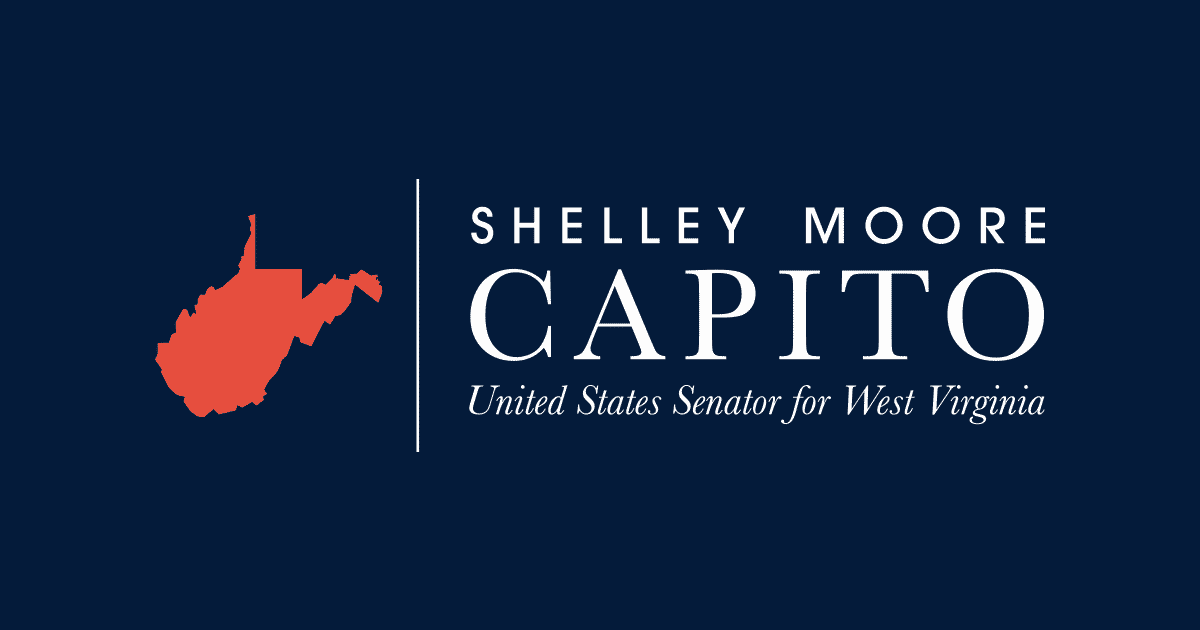Source: United States Senator for West Virginia Shelley Moore Capito
Click here or the image above to watch Ranking Member Capito’s questions.
WASHINGTON, D.C. – Today, U.S. Senator Shelley Moore Capito (R-W.Va.), Ranking Member of the Senate Environment and Public Works (EPW) Committee, participated in a full committee hearing on the need to address America’s broken permitting and environmental review system.
During the hearing, Ranking Member Capito questioned federal witnesses about the best ways to streamline projects of all kinds, and implement commonsense policies such as enforceable deadlines for agencies to meet as they review and approve project and permit applications.
HIGHLIGHTS:
ON BIDEN AMINISTRATION FORCING POLICY PRIORITIES, CIRCUMVENTING CONGRESS WITH GUIDANCE DOCUMENTS: “In January, CEQ (White House Council on Environmental Quality) issued interim guidance for agencies to use in evaluating greenhouse gas emissions during their NEPA reviews, I would like to ask unanimous consent to enter into the record opposition to the guidance from the American Road and Transportation Builders Association, as well as the American Petroleum Institute…the CEQ guidance follows a trend of federal agencies using guidance documents to try to force policy or regulatory changes outside the rulemaking process and without congressional authorities. One recent example was the Federal Highway Administration policy memo that was issued in 2021, which the agency rescinded this year amidst opposition including from myself.”
DELAYS DUE TO LACK OF COORDINATION, STREAMLINING BETWEEN AGENCIES: “I think we agree that complicated, big projects are the ones that we’re really having the problems with on both sides…wherever you are…those are the ones that are causing the issues. And you mentioned that things were…you have single clear deadlines now in a coordinated fashion. This is just not what you’re hearing on the ground. I mean, we have a major project in our state, and the federal agencies aren’t talking to one another. It’s just a serious delay process on the ground. And, you know, to the point where it could cause a project to either a: leave, or b: be postponed for another year because of environmental impacts, which this project is trying to ameliorate in the specific period of time that they can do it and because the permit is so slow coming, they may not have enough time to move the mussels.”
ON THE NEED FOR PERMITTING REFORM TO INCLUDE ENFORCEABLE DEADLINES FOR AGENCIES:
RANKING MEMBER CAPITO:
“So I guess, what am I missing here? Why are we here? If everything’s going better, and we’re coordinating better, what are we going to do here to make these projects move faster? All I’ve heard is earlier engagement by the public. And you know, I don’t have a big objection to that. But is that the only suggestion?”
JASON MILLER, WHITE HOUSE OFFICE OF MANAGEMENT AND BUDGET:
“For each time that there is a delay in a project we should all be crystal clear on the cause of delay. Agencies are required to have remediation plans in place and one of the ways in which we try and hold them accountable is when there is a delay, they need to identify specific challenges.”
RANKING MEMBER CAPITO:
“But what does that really do if they blow by their deadlines? And you’re just asking, ‘you have to give me a reason why you’re blowing by your deadline.’ That doesn’t sound very harsh.”
Click HERE to watch Ranking Member Capito’s questions.
Click HERE to watch Ranking Member Capito’s opening statement.
# # #
